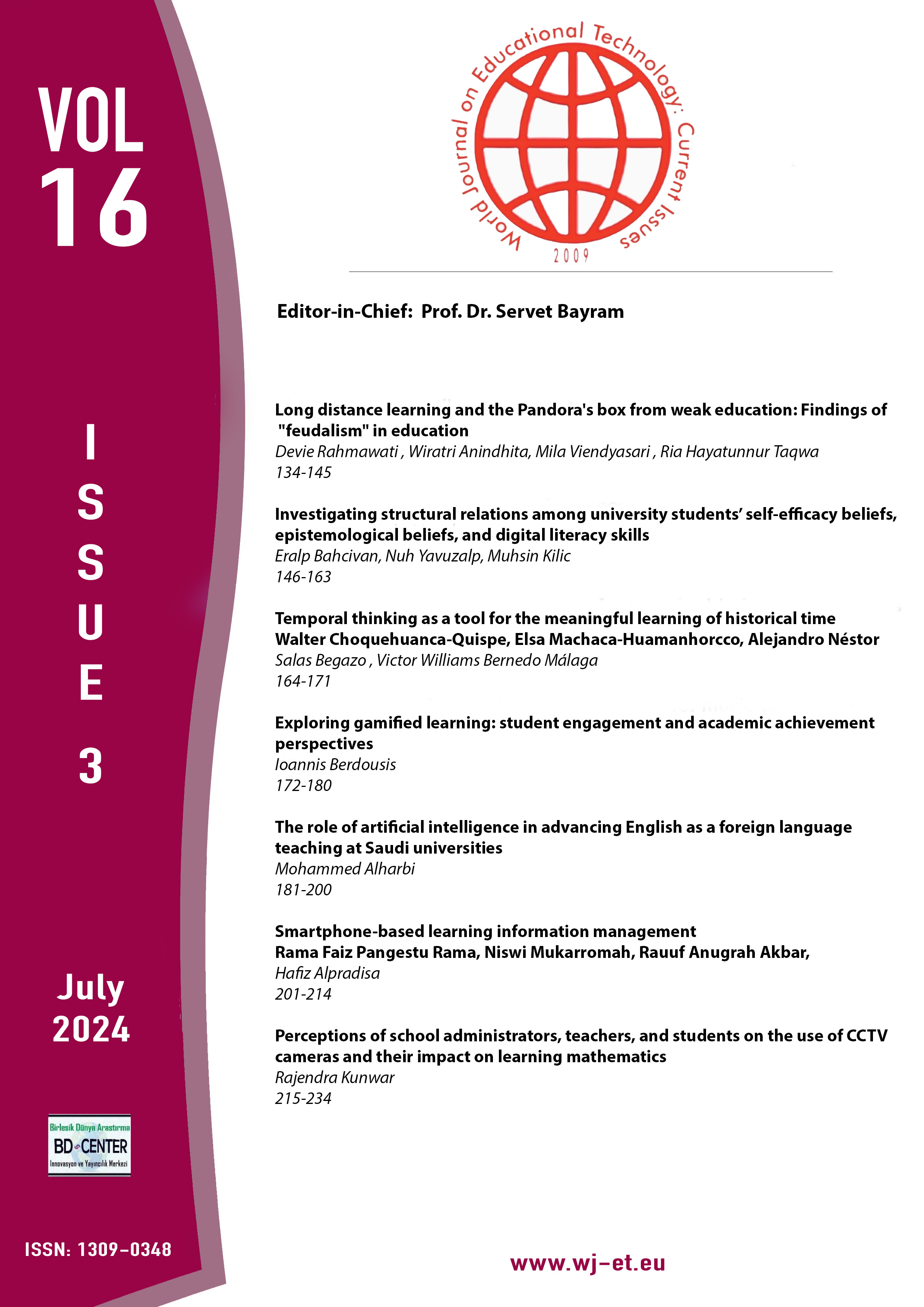Long distance learning and the Pandora's box from weak education: Findings of "feudalism" in education
Main Article Content
Abstract
This study aimed to investigate 7 aspects that influence the online teaching and learning process, as well as find the existence of feudalism in the distance learning model. This study is a qualitative study that was descriptive and used analysis. The theoretical basis is following the facts in the field. The data were collected by using a survey involving the instructor (teacher/lecturer), students, and the parents of the students. The distribution of an electronic questionnaire (e-questionnaire) was carried out through social media platforms. The feudalist model was found to exist within the distance learning practice. Feudalism which is closely related to centralized leadership and managerial models can occur in all aspects of life. Furthermore, it is not impossible in the realm of education. This feudalism is reflected in the teaching and learning process approach which tends to be teacher-centered. Not only in offline or face-to-face models, but this study also revealed that the online teaching and learning process was only an extension of the “feudalism” practice in education during the pre-pandemic era.
Keywords: Distance learning; education; feudalism; online learning.
Downloads
Article Details

This work is licensed under a Creative Commons Attribution 4.0 International License.
World Journal on Educational Technology: Current Issues is an Open Access Journal. The copyright holder is the author/s. Licensee Birlesik Dunya Yenilik Arastirma ve Yayincilik Merkezi, North Nicosia, Cyprus. All articles can be downloaded free of charge. Articles published in the Journal are Open-Access articles distributed under CC-BY license [Attribution 4.0 International (CC BY 4.0)].
Birlesik Dunya Yenilik Arastirma ve Yayincilik Merkezi (BD-Center)is a gold open-access publisher. At the point of publication, all articles from our portfolio of journals are immediately and permanently accessible online free of charge. BD-Center articles are published under the CC-BY license [Attribution 4.0 International (CC BY 4.0)], which permits unrestricted use, distribution, and reproduction in any medium, provided the original authors and the source are credited.
